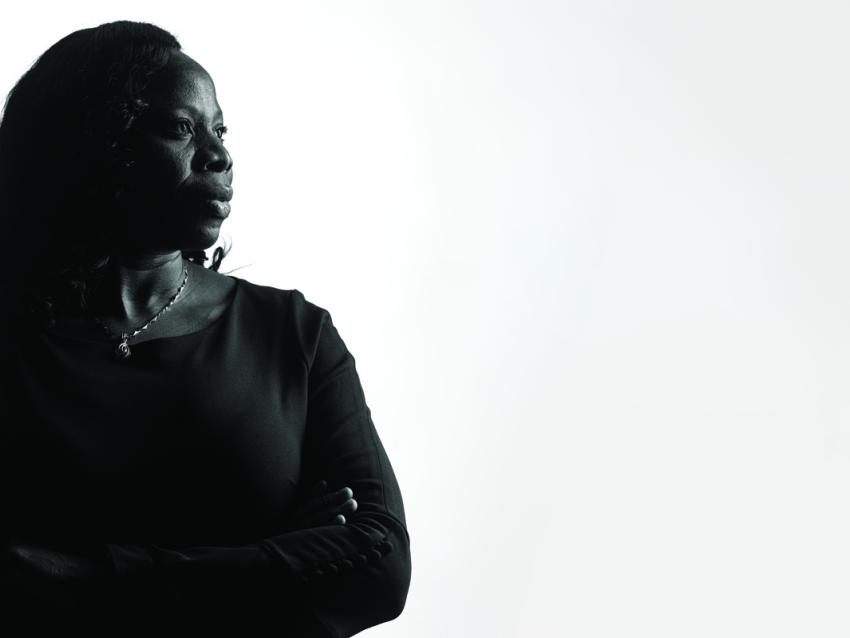
Shining a Light on Cancer & Health Inequities Part VI: Dr. Bola Adeboyega & Cervical Cancer
Growing up in Nigeria, Dr. Adebola Adegboyega saw a lot of disparity rooted in social, economic and educational status. These disparities were further driven home when she became a medical lab scientist involved in HIV prevention, screening and counseling.
“There was a lack of access even to basic infrastructure among the population that I worked with,” she says.
When Dr. Adegboyega came to the United States to study nursing, she noted similar societal disparities, “Many people don’t have what they need to attain their full health potential.”
Her research is focused on trying to change that. She is on the UK College of Nursing’s CHANGE Team and a member of the Cancer Prevention and Control Research Program at Markey, as well as a mentee member of the Translation on Research Interventions into Practice, Population and Policy Leadership (TRIPPLe) Team Alliance.
She is currently looking at cultural attitudes and behaviors related to cancer screening in an effort to understand how to best reach underserved populations with cancer screening and prevention tools.
Dr. Adegboyega is researching attitudes, knowledge and behaviors around HPV vaccination in a pilot study in Lexington, Kentucky among young adult African American and African immigrant populations. “It is difficult for these populations to get vaccinated when many of them don’t know about it in the first place,” she says.
HPV is the most common sexually transmitted disease and can lead to several different kinds of cancer, including cervical cancer, the rates of which are higher in Kentucky and among African Americans than the national average. The goal is to use this information and work within communities to increase awareness, education and HPV vaccination rates. “I’m trying to find out things that are missing so we can try and create programs to fill those gaps,” she says.
Dr. Adegboyega is also studying attitudes toward cancer screenings and prevention among African American and sub-Saharan African women in Kentucky, which will help in developing a strategy to approach cervical cancer screening. Part of that strategy will include training women within these communities to provide support to their peers to encourage regular screenings.
Read this full six-part series: Shining a Light on Health Inequities & Cancer: Nurse researchers are helping vulnerable populations battle the deadly disease
